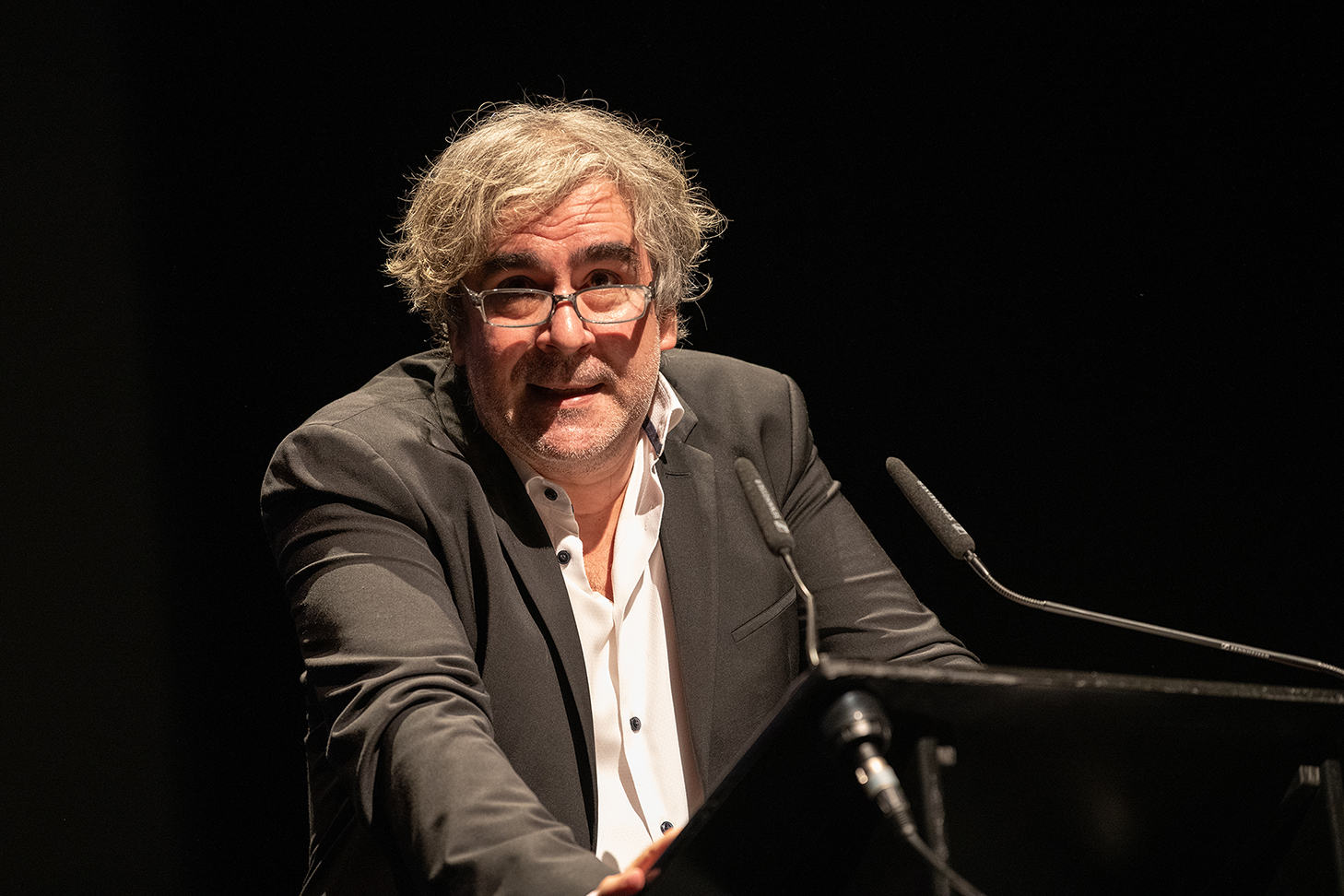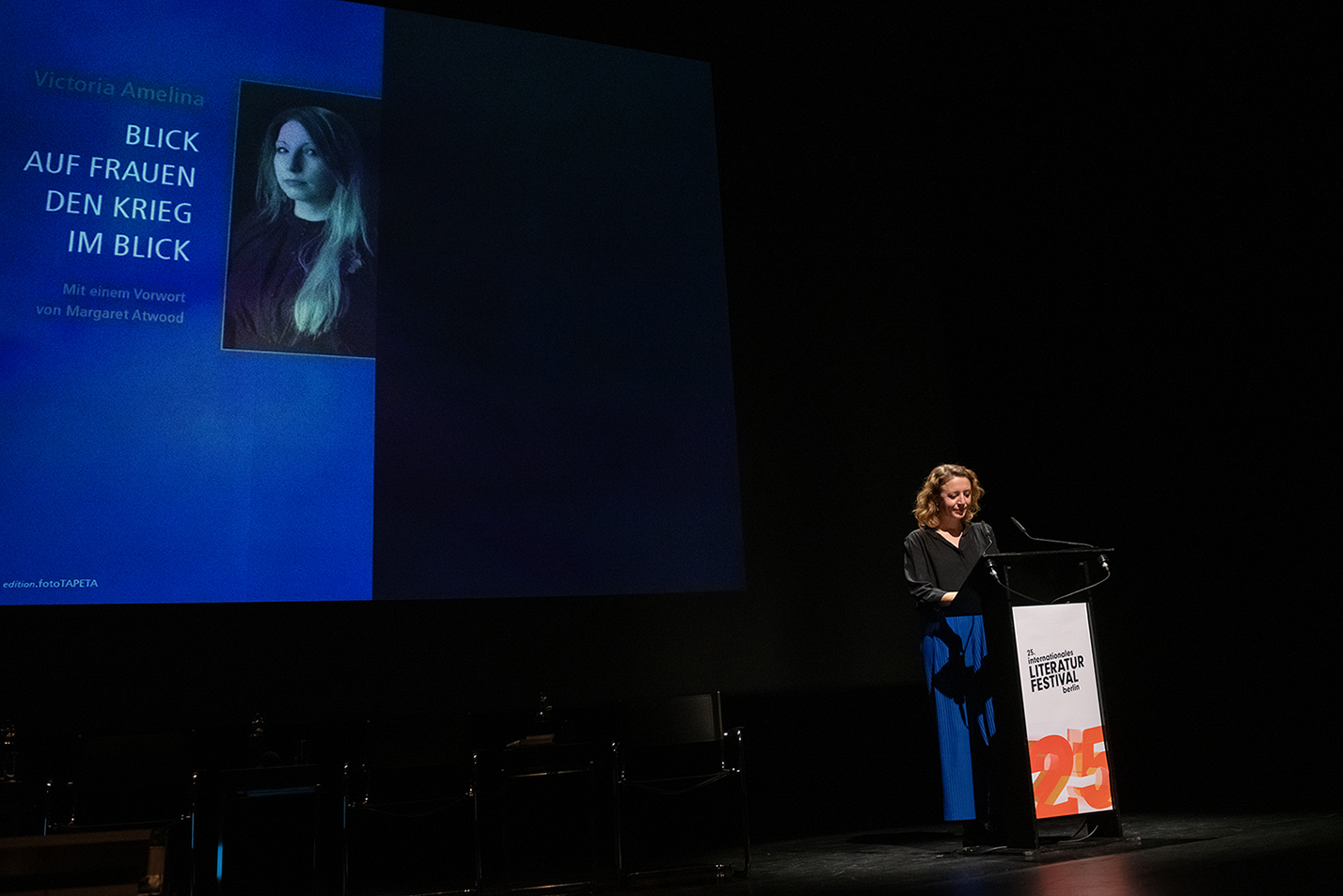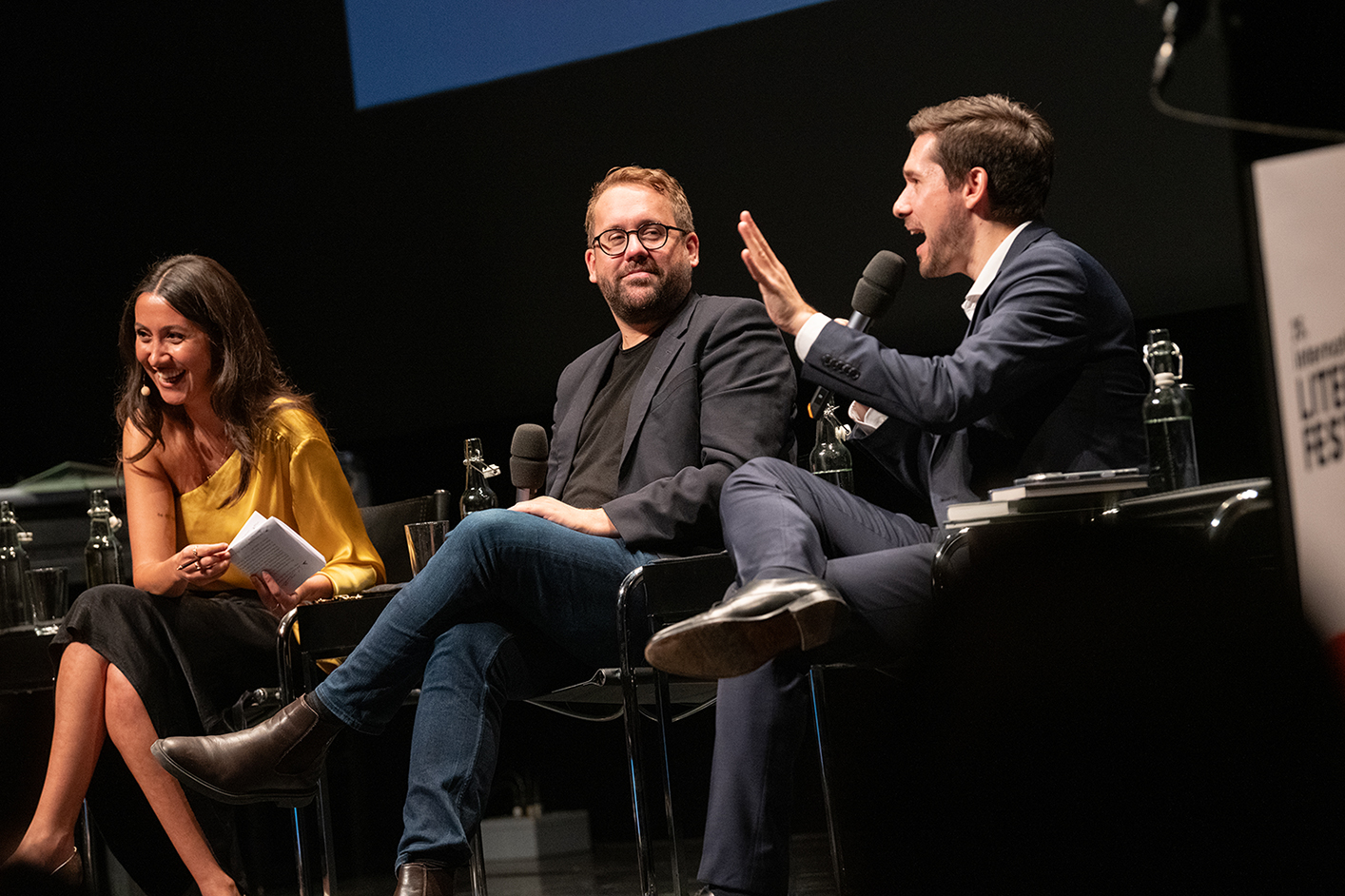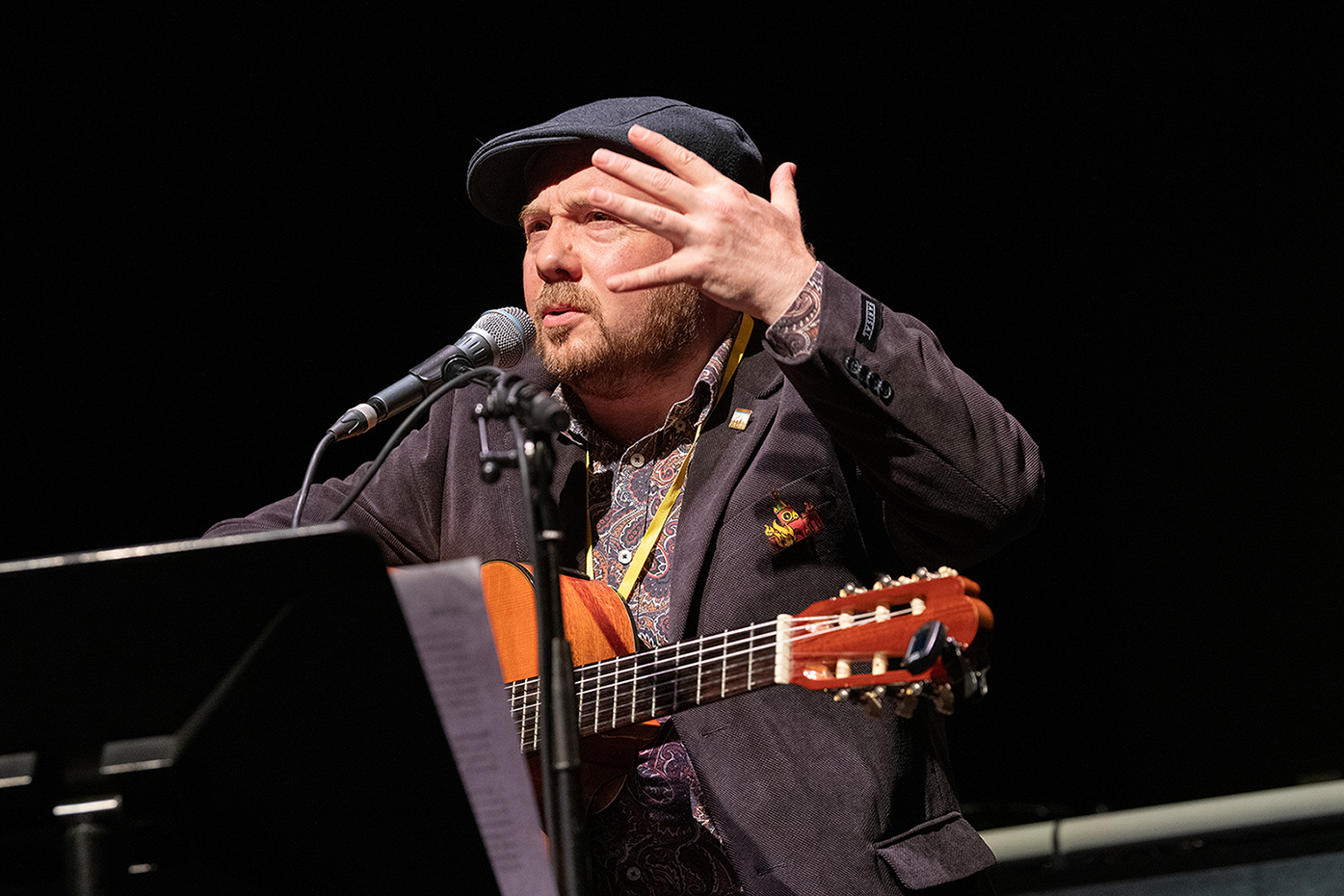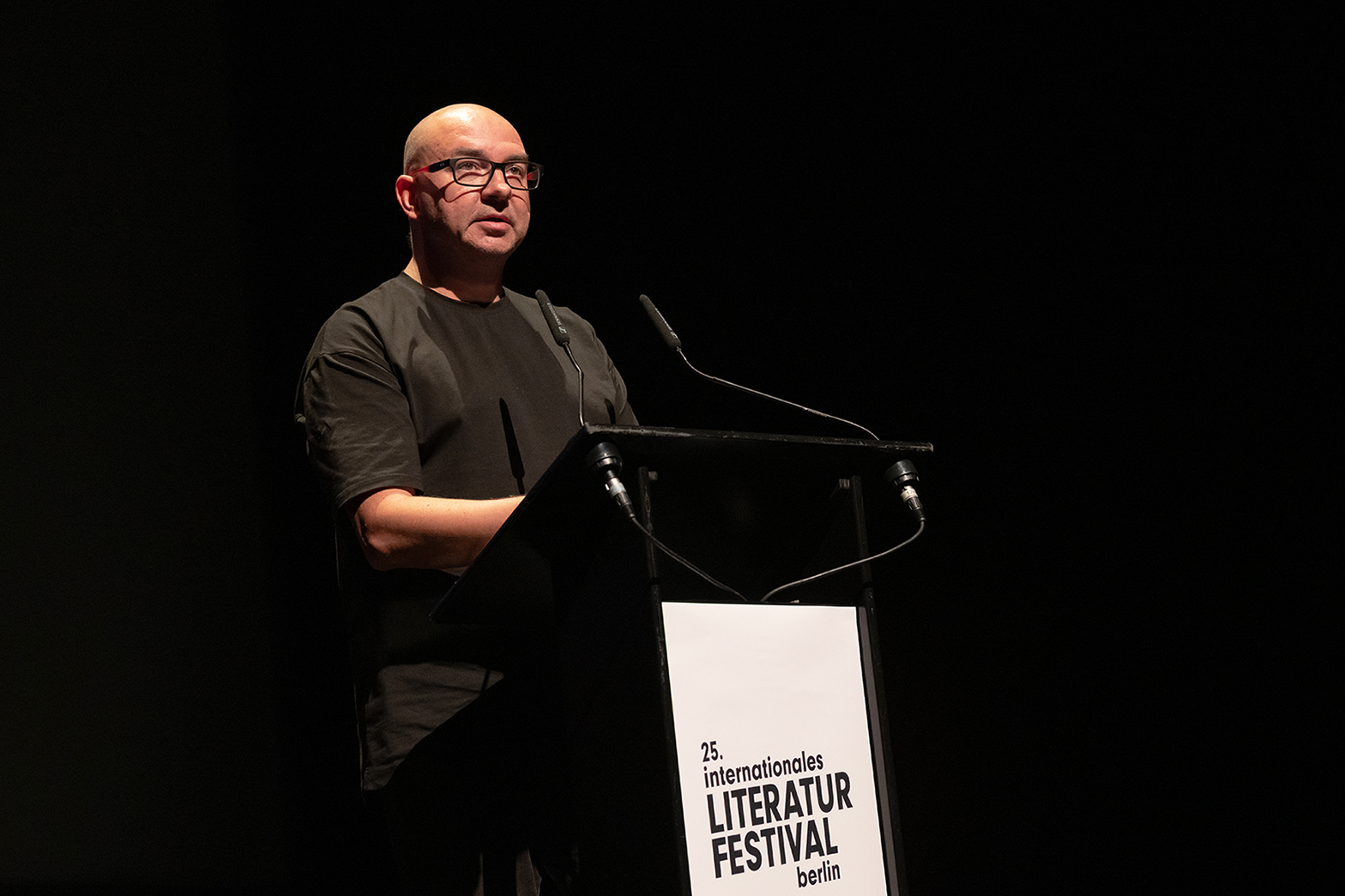Opening speech at the solidarity evening for Ukraine,
internationales literaturfestival berlin, Haus der Berliner Festspiele, 19 September 2025
We Are Not Neutral
By Deniz Yücel
Photos: Erik Weiss
I warmly welcome you to this evening of solidarity. Don’t worry: there will be no further expressions of gratitude. Instead, I would like to explain how we came up with the idea of organising this event and why an authors’ association is holding a solidarity event for Ukraine. I would also like to say a few words about what the word »solidarity« actually means.
PEN Berlin is a non-governmental organisation, so it’s not often that politicians inspire us to organise an event. This time, two politicians — in opposite ways — took on this role. One is Friedrich Merz; the other is Donald Trump.
You may recall the moment during the Bundestag election campaign when Alice Weidel, the leading candidate for the AfD, complained in a television debate that Germany was no longer perceived as neutral by Russia because of its arms deliveries to Ukraine. Friedrich Merz’s response was precise and emphatic: »No, Ms Weidel, we are not neutral«, he said. Or rather, he didn’t just say it; he bellowed it. »We are not standing in the middle. We are on Ukraine’s side, and together with Ukraine, we are defending the political order that we have here.«
The other notable moment occurred just under two weeks later in Washington, when US President Donald Trump and his Vice President J.D. Vance scandalously treated Ukrainian President Wolodymyr Zelensky. Mahatma Gandhi once responded to the question of what he thought of Western civilisation by saying, »Well, I think it would be a good idea.« The history of Western civilisation has by no means always been glorious. But on that historic February day, Trump demonstrated that his administration had no use for this idea either.
These two moments reminded us that, in the face of Hamas’ bloody attack on Israel, the terrible war in the Gaza Strip, and the reverberations of these events, we too had lost sight of Ukraine. That is why we are here this evening. Ms Weidel, Ms Wagenknecht, Ms Schwarzer, Mr Stegner, Mr Welzer, Mr Haslinger and so on, we are not neutral either. We stand alongside our Ukrainian colleagues. Anyone who wants to remain ‘neutral’ between the butcher and the lamb will, whether they like it or not, take the side of the butcher.
The power of words and their limits
Writers, poets, philosophers, journalists… Those whose work is writing naturally believe in the power and significance of the written word — especially their own words, but also otherwise. Words can incite violence or help prevent it. However, once organised violence has been unleashed, it cannot usually be restrained by words alone. Many people find this difficult to accept, especially if they are fortunate enough to be able to witness monstrous events unfolding from a safe distance of several hundred kilometres.
Our Ukrainian colleagues do not have this luxury. Regardless of political, aesthetic and other differences, they are all under attack. They are all defending their country, which is why the image of the lamb is only partially appropriate. Without the Ukrainian people’s heroic struggle, without Ukrainian civil society, this small but great country on the edge of Europe would have been overrun, as some people, including members of the former German government, mistakenly predicted in February 2022.
Some Ukrainian colleagues have joined the armed forces, while many others are trying to help repel the Russian aggression in other ways, through words and deeds. This includes Ukrainian PEN. This includes Viktoria Amelina. This evening also commemorates this courageous writer and journalist, who joined an organisation dedicated to documenting war crimes and was killed in a Russian missile attack in 2023.
Within the scope of our possibilities, we at PEN Berlin are endeavouring to support our Ukrainian colleagues. At the end of 2022, we organised the »Fire Trucks for Kharkiv« campaign, through which we delivered German fire department vehicles, generators, water tanks and other relief supplies worth around €200,000 to Peace Prize winner Serhiy Zhadan, from whom we will hear a video message this evening.
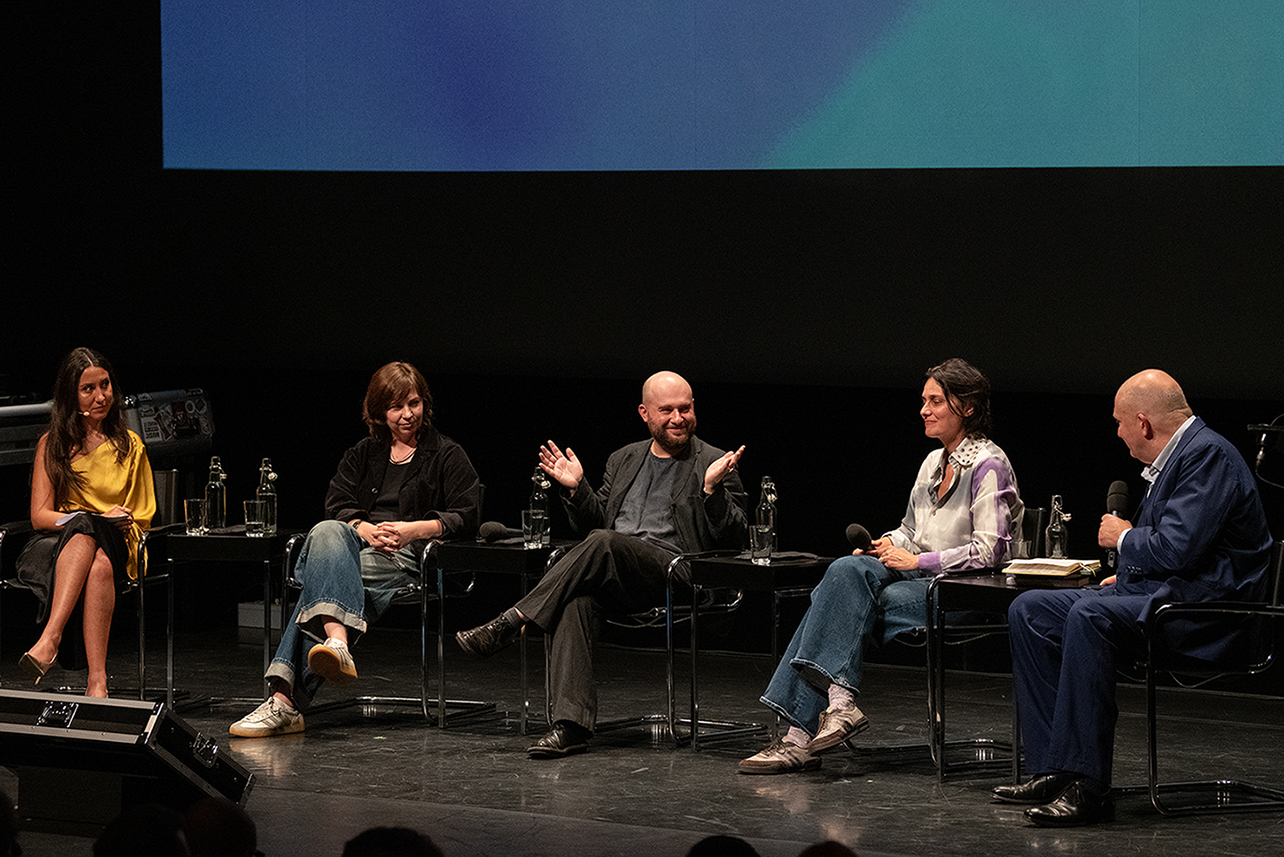
On my way back, I met Volodymyr Yermolenko, president of Ukrainian PEN, who will conclude this evening’s programme — not in Kyiv, but in western Donbass. He was accompanied by two PEN colleagues: his wife, the literary critic Tetyana Ogarkova; and the philosopher Vakhtang Kebuladze. Together, they had transported used cars, purchased by Ukrainian PEN somewhere in Lithuania, to the front, where they are as urgently needed as they are quickly worn out.
The day will surely come for the philosophical and historical analysis of this war, just as the day will come for its literary and artistic processing. However, to quote Hegel, »the Owl of Minerva spreads its wings only with the falling of dusk«.
But as long as Ukrainian civilians continue to die every day as a result of Russian attacks, and Ukrainian soldiers continue to die defending their country, a few used cars, a dozen generators, and of course (unfortunately), a handful of tanks, are worth more than a thousand words. Until then, the most valuable words are those that contribute to Ukraine’s defence in some way.
Solidarity requires a weighty cause and personal commitment
The word »solidarity’, a legacy of the venerable labour movement, is precious to us at PEN Berlin. Solidarity with persecuted authors from all over the world is PEN Berlin’s raison d’être. That is why we use the word with caution. Solidarity requires a weighty occasion. The mere fact that someone has written something nasty on the internet is generally not enough, just as giving likes and hearts to like-minded people on the internet cannot exhaust the concept of solidarity.
Solidarity is called for when someone suffers a serious injustice that affects their very existence, bringing people together — even those who may not have much in common otherwise — to show solidarity in a variety of ways: symbolically, politically and practically.
In other words, solidarity requires a weighty cause and personal commitment, such as time, money or effort, or even risk. Solidarity that expects something in return, or even docility, is not true solidarity. Of course, solidarity does not preclude criticism. But that applies to both sides.
Solidarity is not a purely performative act: being in solidarity means taking action. Whether you organise or attend a solidarity event, for example, is not as important as you might think. In this respect, I would like to express my gratitude: Thank you all for finding your way to the Haus der Berliner Festspiele this evening.
Wolfgang Bochert and Nelly Sachs
One might ask at this point — perhaps not you, but others — whether these considerations contradict the idea of peace enshrined in the Charter of International PEN. Do these considerations contradict the tradition of German post-war literature? Wolfgang Borchert, among others, expressed this sentiment particularly concisely and famously in his anti-war poem (»Say NO«).
I find such objections legitimate and they should definitely be raised. However, I find them fundamentally wrong. In the case of Borchert and most writers of his generation, one can understand from their biographies why their engagement with National Socialism revolved around the themes of war, dictatorship and resistance. However, I believe that the most significant literary references regarding the key lessons to be learned from the Nazi regime, the Holocaust and the war of extermination in Eastern Europe can be found primarily in the works of Paul Celan and Nelly Sachs rather than in those of Wolfgang Borchert, Siegfried Lenz or Günter Grass.
The men from Smolensk or Kharkiv who liberated Auschwitz and the men from New York or Alabama who liberated Buchenwald did not follow Borchert’s call to say »no«. Instead, they closed the »ingeniously conceived dwellings of death« (Sachs) and, at great sacrifice, put an end to the work of the »master from Germany« (Celan) by force of arms.
In his Peace Prize speech three years ago in Frankfurt’s Paulskirche, Serhiy Zhadan asked: »Why, then, do Ukrainians so often prick up their ears when European intellectuals and politicians declare peace to be a necessity? Not because they deny the necessity of peace, but because they know that peace does not come when the victim of aggression lays down its arms.« Of course, we are not in favour of war either; we are not insane. We very much favour peace. However, we are convinced that there can be no peace without freedom. And: We are not neutral. We stand in solidarity.
Keynote by Volodymyr Yermolenko: »For us, the word ›hero‹ is no longer melodramatic«
Message by Serhij Zhadan: »Everything bears the marks of war«
Eine gemeinsame Veranstaltung mit
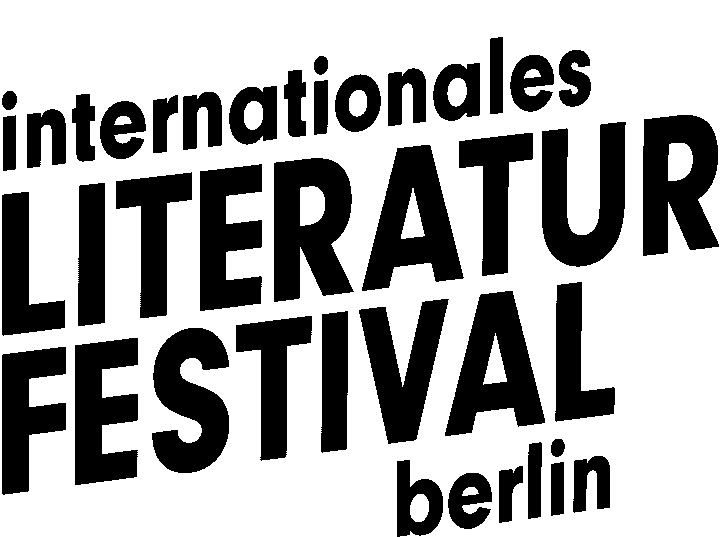
Mit freundlicher Unterstützung von


